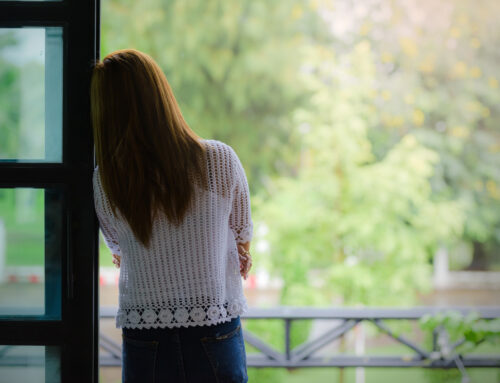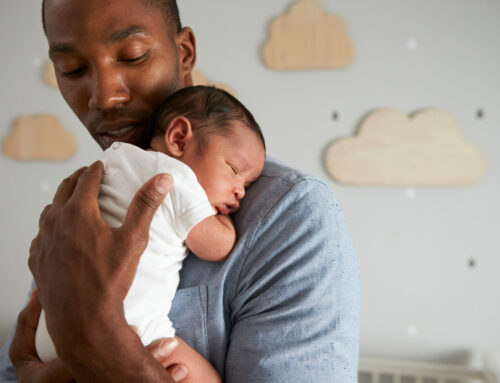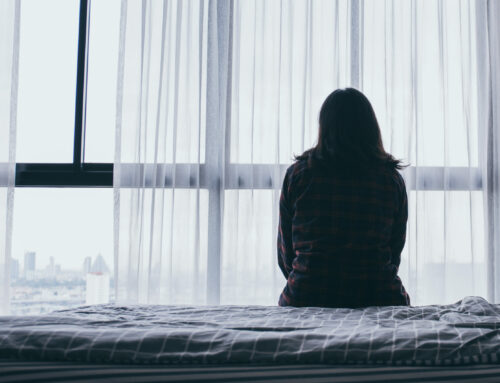
The Mother Wound
I do not have a strong relationship with my mom. If anything I feel like the parent in our relationship more often than not. I often look at my friends’ relationships with their mothers and get jealous. My relationship with my mom wasn’t always this way. We always had our ups and downs, as most mothers and daughters do, but over the last decade it has turned into resentment and barrier filled.
The last year I have become more aware of myself and of my actions as a mother. Sometimes, I did not like the person I was towards my step-son. I was not handling situations well. I would sometimes yell, then we would both end up crying. It was awful and unpleasant for everyone.
I did not want to be like this so I started to work on myself. I read self-help books, listened to podcasts, and followed women who inspired me. Along this journey I came across Bethany Webster. She is the author of Discovering the Inner Mother. Webster also has a Master’s degree in Psychology.
What is the “Mother Wound”?
The Mother Wound can be described as, “the pain rooted in our relationship with our mothers that is passed down from generation to generation in patriarchal cultures and has a profound effect on our lives,” (Webster, Bethany. https://www.bethanywebster.com/about-the-mother-wound/).
Becoming more aware of myself and how I was acting towards my step-son, I began to see how some of my actions were similar to the actions and choices of my mother during my childhood. I hated coming to that realization. However, this really opened my eyes to the relationship between my mother and her mother and the similarities; their relationship was very bitter, angry, and cold. There was no sign of real love and support, no warmth, or guidance. I do not blame my mother for her actions – knowing what I know now, it was all she knew. She was doing the best she could with what she was given. I really want to change that dynamic with my mother before it is too late. My life is mine to live and create how I chose. I do not have to go down the same road as previous generations of my family, I can be that change.
Here are some tips to identify and heal The Mother Wound
Some signs that the Mother Wound is manifesting in your life:
- Not being our full selves because we don’t want to threaten others,
- Having a high tolerance for poor treatment from others,
- Emotional care-taking or exhibiting codependent behaviours,
- Feeling competitive with other women,
- Self-sabotage when we’re close to breakthroughs,
- Conditions such as eating disorders, depression, and addiction,
- Being too rigid and dominating,
- Perfectionism, feeling like we have to control everything to be OK.
It could also come up in your life as different forms of pain:
- Shame: a vague sense there is something wrong with us,
- Comparison: not feeling good enough,
- Attenuation: feeling we must remain small to be loved,
- A persistent sense of guilt for wanting more than we currently have.
Where does the Mother Wound come from?
In many cultures, and even within male-dominated families, women are conditioned to think of themselves as “less-than”. Which leads us to feel like we are not deserving or worthy of the life we long for. Women will internalize these feelings of worthlessness and pass them down from generation to generation.
We, as women, often forgo our dreams, bottle up our desires, and suppress our needs in favour of meeting the cultural ideal of what womanhood should be.
How to heal the Mother Wound.
- Examining the mother- daughter relationship with an intention to gain clarity and insight on past stories and traumas to move forward creating positive change in our lives,
- Adopting new beliefs that fully support our self-actualization,
- Taking responsibility for our own paths – become more conscious and aware of your choices – make new ones that reflect our true desires.
The good news is the Mother Wound can be healed; it takes a lot of personal reflection and a willingness to bring about meaningful change. It can be a painful process too as you accept the flaws you have and the way it has transferred into your own parenting.
This blog is based on one person’s experience and is not considered complete and should not replace seeking the help of a trained mental health professional.
Reference: https://www.bethanywebster.com/about-the-mother-wound/












 Sharon Walker, MSW, RSW
Sharon Walker, MSW, RSW Jordon Iorio Hons. BA, RSW
Jordon Iorio Hons. BA, RSW Christine Bibby, B.S.W., M.S.W., R.S.W.
Christine Bibby, B.S.W., M.S.W., R.S.W. Brianna Kerr, RSW
Brianna Kerr, RSW Danielle Vanderpost, RSW
Danielle Vanderpost, RSW Daniela Switzer, MA, C.PSYCH
Daniela Switzer, MA, C.PSYCH Tammy Adams
Tammy Adams Jade Bates, RMT
Jade Bates, RMT Caitlin Schneider
Caitlin Schneider Dr. Crysana Copland
Dr. Crysana Copland
 Amy Dougley
Amy Dougley Emily Green
Emily Green Bill Dungey, RSW
Bill Dungey, RSW


